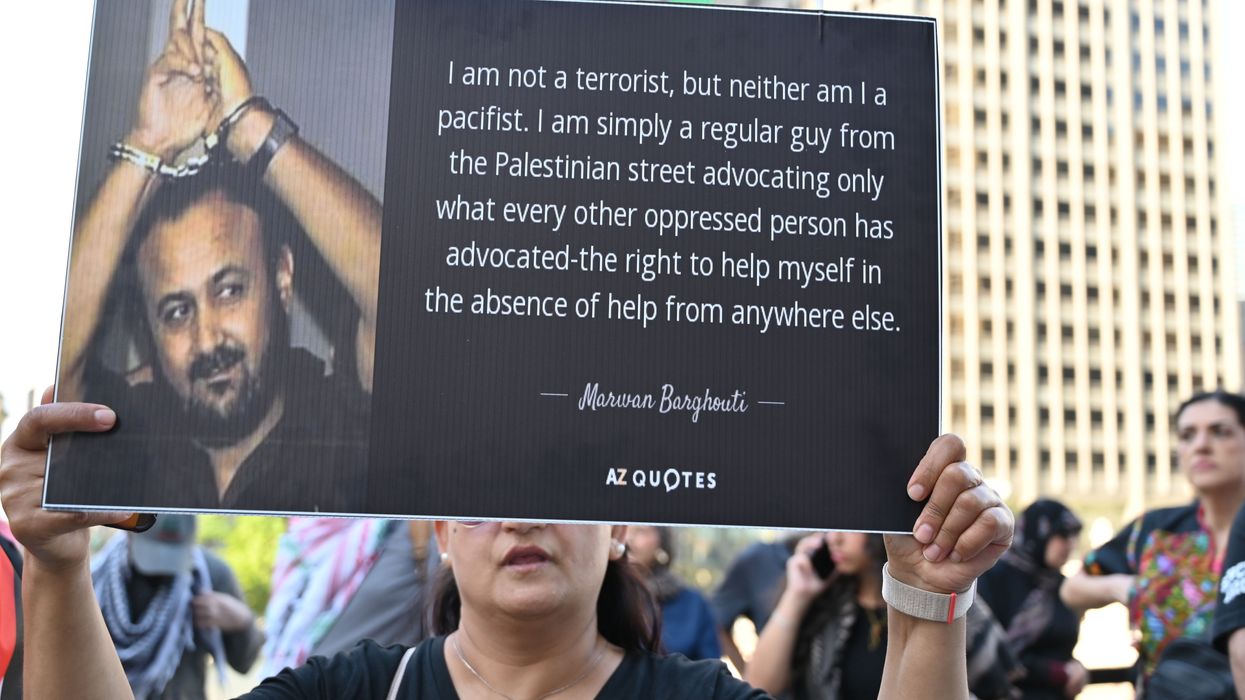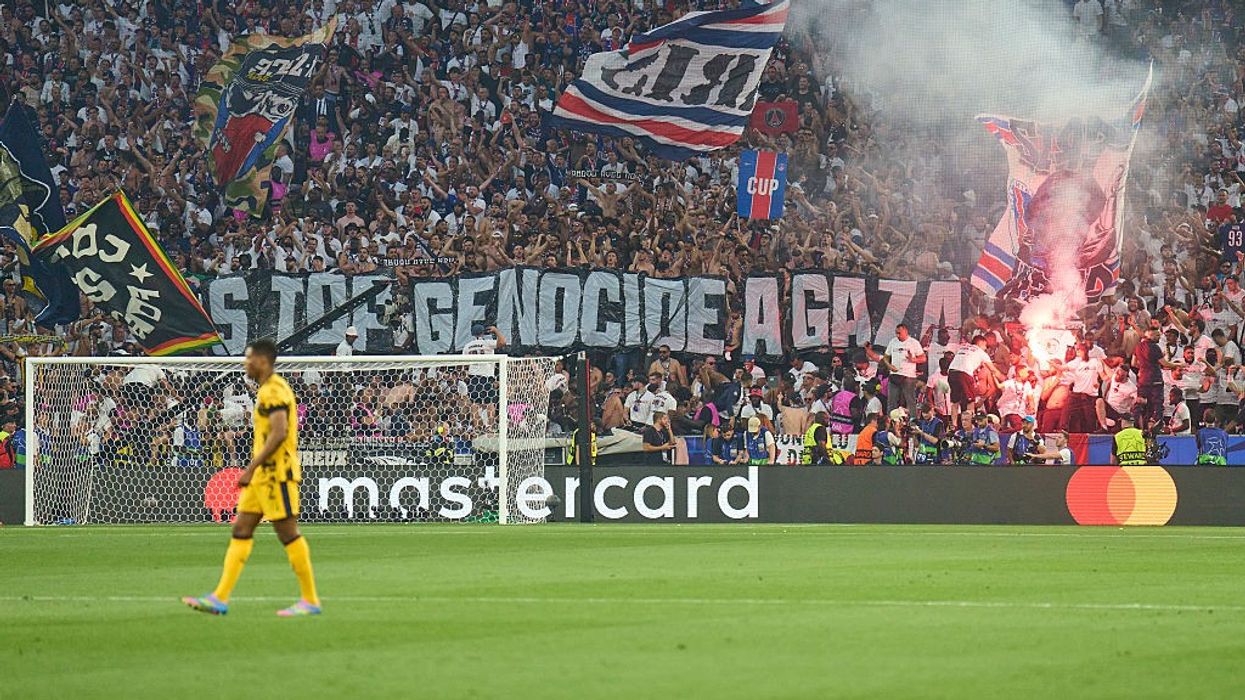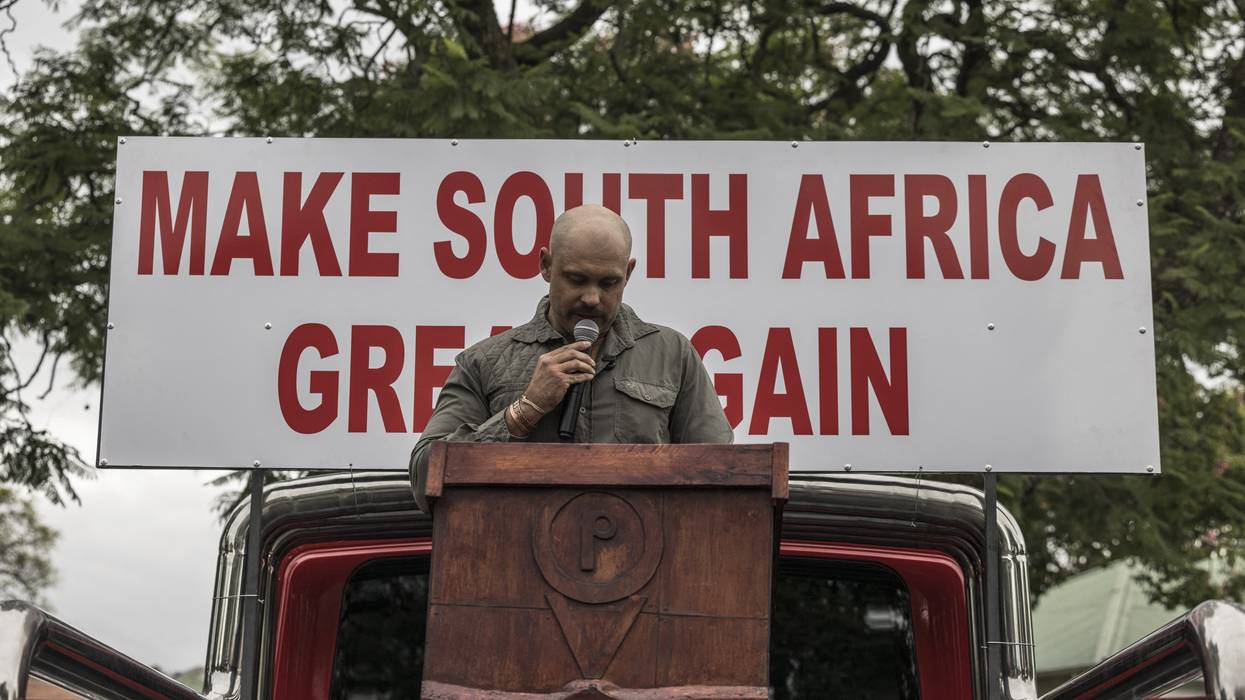The campaign is being likened to the effort to free Nelson Mandela from the prisons of Apartheid South Africa in the late 1980s, which presaged the end of Apartheid itself.
Palestinian leadership is a mess, though this is largely the fault of Israel and the United States. Occupied people are often divided and ruled by outsiders, who bribe and spy and set honey traps. They turn any successful indigenous leader into either a collaborator or a terrorist. They damage the local economy and so set the stage for societal failure. The Oslo Accords of 1993 turned the Palestine Liberation Organization, which gave up its chief bargaining chip by recognizing Israel, into a tool for policing Palestinians to keep them from rising up over being brutally occupied. As a result, the PLO is now widely hated. Not to mention that the Israeli refusal to allow elections to be held after 2006 has ensured that the Palestine Authority leaders became a corrupt gerontocracy.
Hamas was alternatively bankrolled by the Israelis or at their behest and cooped up in a large open air concentration camp, a combination that made them dangerous rather than complacent and as a result they committed the horrors of October 7, 2023, ensuring that no Israeli or American government could deal with them ever after.
The Israelis want the Palestinian leadership weak and divided, and they have succeeded in arranging for this outcome.
Bargouti has none of the taint of corruption and collaborator status that now clings to the PLO, since although he is a member of Fateh he has been in prison for the bad old days. He has from his youth been opposed to Hamas.
Barghouti was born in 1959 in the hamlet of Kober in Ramallah governorate. His wife Nadwa is an attorney and women’s rights activist.
Barghouti in his teens joined the Communist Party and participated in peaceful demonstrations. As historian Joel Beinin showed in his Was the Red Flag Flying There? Marxist Politics and the Arab-Israeli Conflict in Eqypt and Israel 1948-1965, the Communist Party was one of the few political vehicles in Israel and Palestine that had both Israeli and Palestinian members, since Marxism rejects nationalist chauvinism.
The Israeli-Palestine problem, however, did not seem to him likely to be resolved by sitting around the campfire singing the Marxist equivalent of Kumbaya, and he gravitated to Fateh, the leading group within the Palestine Liberation Organization, led by Yasser Arafat. In 1978, the Israelis arrested Barghouti when he was around 19, apparently just for being associated with the PLO. They imprisoned him for four years. He finished up his high school degree at Prince Hassan High School in Bir Zeit by completing correspondence courses from prison.
After he was released in 1982, when he must have been about 23, he went to Bir Zeit University and did a BA in History and Political Science. Then he did an MA at Bir Zeit in International Relations. During the 1980s he was active in campus politics and was elected head of the Bir Zeit University student council.
In 1987, the Israelis expelled him to Jordan, which is a war crime. That is, an occupying power is forbidden in the Fourth Geneva Convention of 1949 of displacing members of the occupied population. He had to remain in forced exile until 1993, when Israel signed the Oslo Accords with the PLO and the latter recognized Israel, ending the state of conflict between the two in principle.
On his return to his homeland, Barghouti landed a teaching position at the main Abu Dis campus of al-Quds University in Jerusalem. In the 1990s, Barghouti was known for having good relationships with Israelis. He rose to become secretary-general of Fateh in the Palestinian West Bank, and then was elected to the Palestinian parliament established after Oslo. He established the secular Tanzim paramilitary to combat rising fundamentalist Hamas militants. He was seen as a young comer in Palestinian politics, as someone on whom the old guard like Yasser Arafat depended. But he was also critical of the corruption that arose in the Palestine Authority.
But during the Second Uprising (Intifada), the relationship between the Israelis and Palestinians again turned violent. In 2002, Barghouti wrote an op ed for the Washington Post entitled “Want Security? End the Occupation.” He said,
“Over the past 15 months, Israel has killed more than 900 Palestinian civilians, 25 percent of them under the age of 18.”
He added,
“I am not a terrorist, but neither am I a pacifist. I am simply a regular guy from the Palestinian street advocating only what every other oppressed person has advocated — the right to help myself in the absence of help from anywhere else. This principle may well lead to my assassination.”
Thereafter, a militant Fateh wing committed violence in Israel, killing dozens of Israelis and the Israeli authorities tagged Barghouti as involved, though they never made public what evidence they had of his involvement. In 2004 he was sentenced to five life sentences.
I am a severe critic of terrorism in the sense of targeting civilians for political purposes. But in the real world of politics, people who deploy that tactic sometimes do have a political comeback. Menahem Begin, who boasted of machine-gunning down innocent Palestinian women and children at Deir Yassin in 1948, became prime minister of Israel and won the Nobel Peace Prize. Ahmed al-Shara, formerly head of an al-Qaeda offshoot, who was imprisoned by US marines in Iraq, and who certainly committed a ton more terrorism than Begin, was just recently an honored guest in the Trump White House. Nelson Mandela himself committed political violence in his youth, for which he was imprisoned; he was no pacifist. Released from prison, he became president of South Africa and urged reconciliation.
In prison Barghouti finished a doctorate in political science in 2010 and is known for having argued for restraint and against violence to his Palestinian audience on the outside.
His advice to the Israelis in 2002, which, to say the least they haven’t heeded, is still the best advice. If you want security, end the occupation. If Barghouti could help do that, it might save Israel from its own most self-destructive instincts — which are at the moment sinking it.




